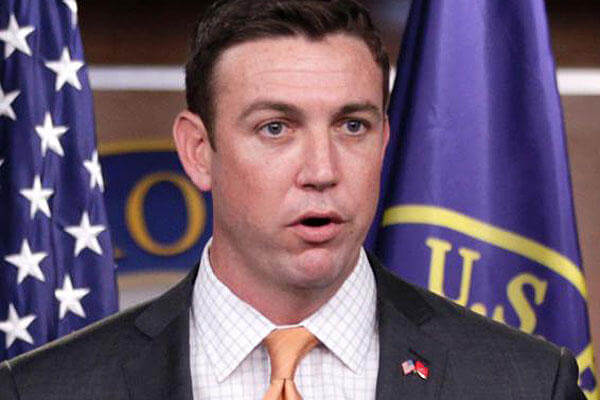Army Special Forces Maj. Matthew L. Golsteyn allegedly admitted to the CIA that he murdered a suspected Afghan bomb maker and later burned the body to cover up evidence, according to Army documents.
The documents disclosed last week by the "Intercept" website will figure in a scheduled May 18 separation board hearing in the Army's effort to force Golsteyn out of the service.
Despite the latest disclosures in the case, Rep. Duncan Hunter, R-Calif., continued to support Golsteyn and said there was no corroborating evidence to back up the charges against him.
The allegations against Golsteyn while serving with the 3rd Special Forces Group had surfaced before, but the documents cited by the Intercept, including a scathing letter of reprimand against Golsteyn, were the first to show the details of the Army's case against him.
The Intercept was founded in 2014 to publish documents released by Edward Snowden, the former National Security Agency contractor facing federal charges of leaking massive amounts of data and documents. Snowden escaped a manhunt and is now living in Russia.
In the course of a job interview with the CIA in September 2011, Golsteyn allegedly admitted to hunting down and killing an "unknown, unarmed Afghan" and burying the body. Golsteyn also allegedly said that he and two others from his unit later went back to the site, dug up the body, burned it and disposed of the remains.
"Golsteyn stated that he knew it was illegal but was not remorseful as he had solid intelligence and his actions protected the safety of his fellow teammates," the Army document said.
The CIA quickly alerted the Army to a "possible violation of criminal law" and the Army's Criminal Investigation Division (CID) began a lengthy investigation, but no criminal charges have been filed against him.
In November 2013, Army Secretary John McHugh, based on the CID investigation, stripped Golsteyn of his Silver Star and other awards he had earned, and his Special Forces tab. Golsteyn had earned the Silver Star for actions against enemy snipers.
The Army had been considering upgrading the Silver Star to a Distinguished Service Cross, but the upgrade has been put on hold.
In April last year, Brig. Gen. Darsie Rogers, commander of Army Special Forces Command (Airborne), put a letter of reprimand in Golsteyn's file.
The letter read in part: "Your behavior in this matter manifests a complete lack of judgment and responsibility. You have discredited yourself, the U.S. Army Special Forces Command, and the United States Army. Your conduct constitutes a serious departure from the high standards of integrity and professionalism expected of a Commissioned officer of this command."
Joe Kasper, a spokesman for Hunter, called the Intercept report "a hugely subjective document that was intentionally leaked." He said Hunter continues to support Golsteyn since the document presented "not a shred of evidence and not one corroborating account.'
"Both were so lacking the Army couldn't charge Matt criminally, despite their best efforts. All of it shows poor leadership and judgment on the part of the Army," Kasper said.
In an article last February for the Daily Beast, Hunter cited Golsteyn's case in criticizing what he called the "excessive politicization of the military during wartime, giving rise to high profile prosecutions, excessive punitive actions and decision making that is at odds with the best interests of service personnel."
In a rush to judgment, Army bureaucrats "seem to ignore the realities of war or the fact that in combat, split-second decisions must be made for the purpose of preserving lives and attaining objectives," Hunter wrote.
According to Hunter, the allegation "was presented through informal channels to the Army, which went to extraordinary lengths to investigate Golsteyn. The Army tried to turn up anything it could, but was unable to find one piece of evidence to corroborate the allegation."
In the meantime, Golsteyn "has been sidelined, his Special Forces recognition stripped, all while a guessing game has ensued about what will happen to this decorated warfighter," Hunter said.
-- Richard Sisk can be reached at richard.sisk@military.com




























